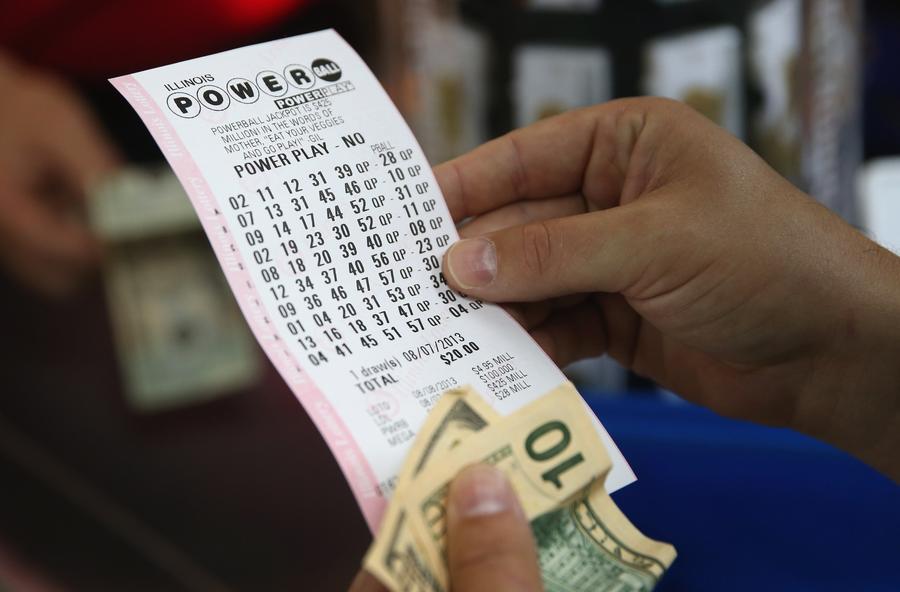If you were skeptical about the idea that the rich have it easier in America, here's a potent illustration of how that principle can work. It turns out that if you have the necessary resources, you can even shape the lottery to your favor. A group of MIT students confirmed this in a prolonged experiment involving Massachusetts' Cash WinFall, a lottery game that is probably going to be revamped by the state once they find out how they were able to game the system – in fact, the game has already been canceled by the state of Massachusetts.
Using math skills that would make the average person's head swim, the students discovered that by purchasing around a hundred grand worth of lotto tickets on days when then game's big jackpot was broken into smaller prizes after no big winner was awarded, they could practically guarantee a healthy sum on return. Taking it farther, they were able to secure a nigh-guaranteed return of ten to fifteen percent on their investment if they purchased around $600,000 worth of Cash WinFall tickets. Then, they filed their findings away in an academic report, abstaining for participating in the lottery due to ethical concerns. Just kidding.

Scott Olson/Getty Images
What actually happened is that the MIT group kept buying in when conditions were most favorable, and used their system to earn more and more money. The scheme eventually expanded to include additional investors to secure the required number of tickets, and most of the members of the original group quit their day jobs and let their lottery earnings roll in. By 2005, a newspaper investigation found that the students had netted a total of $8 million through the scheme. In 2010, they could secure the whole jackpot in the space of a single drawing period, just by purchasing an overwhelming number of tickets and cashing in on the winner's smaller jackpot fractions, adding up to the original total. The system itself isn't particularly complicated, but it requires an enormous amount of funds to implement properly – but with a healthy return on the investment all but guaranteed, it wasn't hard to get people on board.
Before you start cashing out your savings and heading to 7-Eleven, you should know that over and above the group's system only working for this particular lottery game, they also had some inside help from the people behind the Massachusetts Lottery. Lottery officials turned a blind eye to the group's purchasing hundreds of thousands of lottery tickets at a time even though such actions were technically prohibited. Their motivation for doing this wasn't a cut of the loot (which is why they won't face disciplinary action for it), but because the revenue from the scheme still benefited the lottery's profit margin. This gives you an idea of how lotteries work in general – even with a system that guarantees payout of the jackpot amount, the lottery still wins.
Now that the Cash WinFall game has been discontinued by the powers at be, this group of MIT students have to find a new way to earn a profit with their incredible, virtually superhuman mathematical abilities. That shouldn't be any harder than winning the lottery.
/2016/09/GettyImages-504808138-2.jpg)
/2024/10/lottery.jpg)
/2015/01/GettyImages-520864378.jpg)
/2016/01/GettyImages-504799788.jpg)
/2015/06/GettyImages-50803750-e1513997655730.jpg)
/2017/09/GettyImages-463217092.jpg)
/2011/11/Nile-Rodgers-1.jpg)
/2013/11/GettyImages-872054696.jpg)
/2021/11/Mick-Hucknall.jpg)
:strip_exif()/2020/06/taylor.png)
/2009/11/Rod-Stewart.jpg)
/2020/01/Bruce-Buffer.jpg)
/2019/03/lh.jpg)
/2009/11/rw.jpg)
/2023/04/Robert-Smith.jpg)
/2013/02/GettyImages-71375168.jpg)
/2024/05/Ilia-Topuria.jpg)
/2011/01/Mira-Sorvino.jpg)
/2011/01/GettyImages-486584191.jpg)
/2021/01/Daryl-Hannah.jpg)
/2013/11/Gary-Lightbody.jpg)
/2020/02/buffer.png)
/2015/05/jh.jpg)